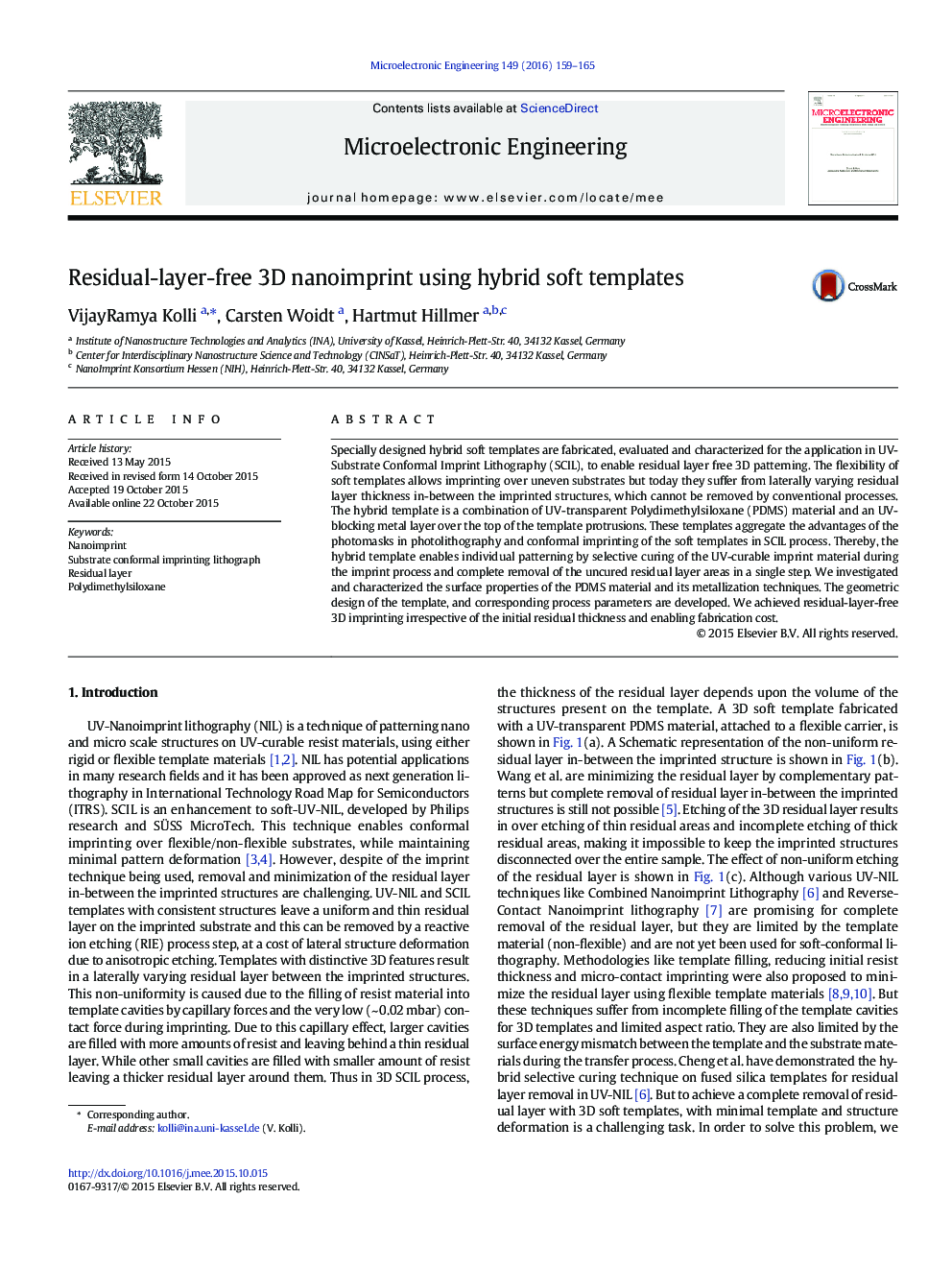| Article ID | Journal | Published Year | Pages | File Type |
|---|---|---|---|---|
| 541205 | Microelectronic Engineering | 2016 | 7 Pages |
•We developed a hybrid soft template for residual-layer-free 3D nanoimprinting.•Surface properties and Metallization techniques of PDMS are investigated and characterized.•The geometric design of the hybrid soft template and corresponding process parameters are developed.•By implementing hybrid soft templates, residual layer free patterning is achieved and enabling low fabrication cost.
Specially designed hybrid soft templates are fabricated, evaluated and characterized for the application in UV-Substrate Conformal Imprint Lithography (SCIL), to enable residual layer free 3D patterning. The flexibility of soft templates allows imprinting over uneven substrates but today they suffer from laterally varying residual layer thickness in-between the imprinted structures, which cannot be removed by conventional processes. The hybrid template is a combination of UV-transparent Polydimethylsiloxane (PDMS) material and an UV-blocking metal layer over the top of the template protrusions. These templates aggregate the advantages of the photomasks in photolithography and conformal imprinting of the soft templates in SCIL process. Thereby, the hybrid template enables individual patterning by selective curing of the UV-curable imprint material during the imprint process and complete removal of the uncured residual layer areas in a single step. We investigated and characterized the surface properties of the PDMS material and its metallization techniques. The geometric design of the template, and corresponding process parameters are developed. We achieved residual-layer-free 3D imprinting irrespective of the initial residual thickness and enabling fabrication cost.
Graphical abstractFigure optionsDownload full-size imageDownload as PowerPoint slide
